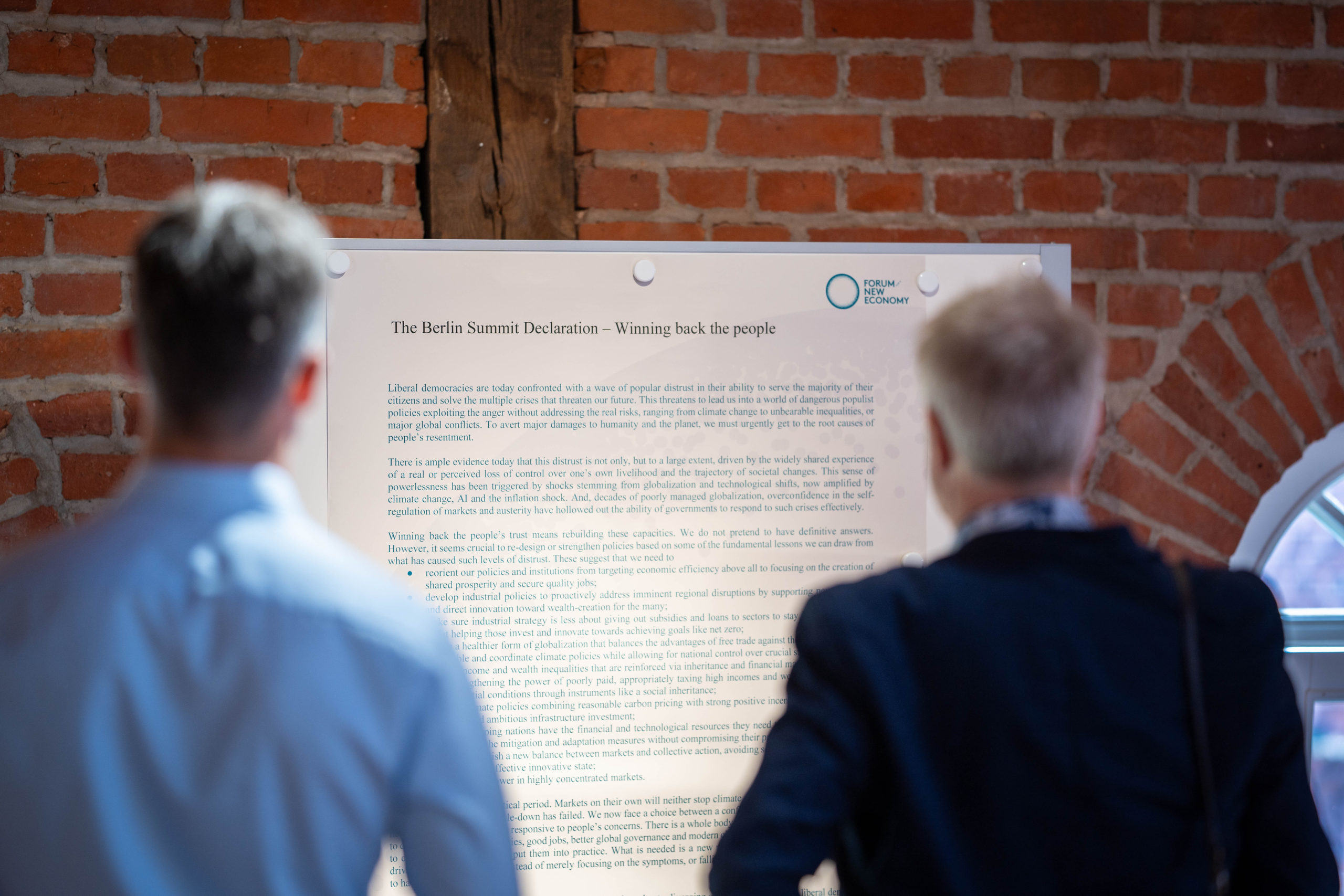NEW PARADIGM
Berlin Declaration - Expression of a New Paradigm?
From our Forum New Economy newsletter series
BY
THOMAS FRICKEPUBLISHED
14. JUNE 2024READING TIME
4 MIN
Should the 2025 debt brake be adhered to – or not? And the chip factory in Magdeburg subsidized with billions? And the minimum wage raised to 15 or 16 euros? And what about the CO2 tax, which is supposed to act as a deterrent, but is actually a deterrent? All of this can be decided politically on an ad hoc basis – with the risk of ending up with lots of inconsistencies. It is better if all of this is derived from a basic understanding of how the state should work, what debt means, how labor markets function and whether industrial policy can be sensible and necessary in view of limited market forces.
Until the great financial crisis of 2008, the answer was clear according to the prevailing doctrine: pro-market. Since then, the belief in precisely this basic market-liberal understanding or paradigm has been deeply shaken. And the search for new answers is ongoing – driven by a host of innovative thinkers who are working on a number of attempts at new interpretations and recipes.
The fact that a new unifying understanding has matured in the process is something that has probably never been more evident than in the declaration signed by dozens of leading experts at the Berlin Summit two weeks ago. All the more so as it is not about wishful thinking, but about something that clearly stands out from what has dominated for decades under the label “Washington Consensus”: whether in the redefinition of the role of the market and the state; the realization that societal well-being and economic efficiency do not always go together; the insight into the limited efficiency of (labour) markets or arguments for an industrial policy. Also in the interpretation that a good part of the causes of people’s discontent and the rise of populists were created in the market-liberal era.
Having so many world-renowned academics and practitioners agree on such an interpretation is equally remarkable – from thought leaders such as Dani Rodrik, Mariana Mazzucato, Thomas Piketty and Isabella Weber to former Clinton advisor Laura Tyson, Nobel Prize winner Angus Deaton and former IMF chief economist Olivier Blanchard.
A new paradigm? Something like the Washington Consensus once was, as Branko Milanovic says? There is a lot to be said for it. But what is in the Declaration is not just a new basic understanding, but also a mandate to translate all this into more concrete answers and practical solutions. Of course there is a lot to be said for having minimum wages today – but how high should they be? Of course there are a number of good reasons for a new industrial policy – but what does that mean in individual cases? And how much more industry is needed? What role should CO2 pricing still play – and what role should setting positive incentives and investing in infrastructure play?
All of this was explored at the summit at the end of May – in the sessions on industrial policy with Dani Rodrik, Jakob von Weizsäcker and Franziska Brantner, as well as in the session on a modern climate policy. Or in the discussion on the lessons learned from the recent crises for the fight against inflation or the new role of the state. Just a stopover. Let’s move on.
In our next New Economy Short Cut, we talk to Branko Milanovic and Isabella Weber about the Berlin Declaration, its significance and its prospects. And perhaps also about why so much old thinking still prevails in Germany despite such a seemingly far-reaching new international consensus, not only, but especially among important politicians such as the Federal Minister of Finance: on June 26 from 4 pm. You can register here and find further information here.
If you want to find out more about what was discussed at the Summit, please find all video recordings and summaries here.
This text is from our bi-weekly newsletter series. To subscribe, click here.
